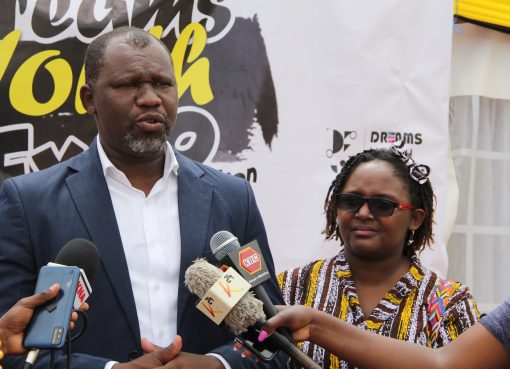The mining firm celebrated the accomplishments of 120 Base employees who successfully completed the RPL programme upon successful assessment by the National Training Industrial Authority (NITA).

RPL, formerly known as Accreditation of Prior Learning, provides for recognition and validation of skills, knowledge, and competencies that individuals have acquired formally and non-formally.
Recognition of Prior Learning is a process through which the skills, knowledge, and competencies gained by an individual through work experience, informal training, or life experiences are recognised towards the attainment of a formal qualification or certification.
Mining Principal Secretary (PS), Elijah Mwangi, presided over the vibrant graduation and certification ceremony where 120 highly trained professionals were issued with certificates under the RPL at Base Titanium’s Site in Kwale County.
PS Mwangi says this laudable achievement comes after years of intensive and extensive hands-on training in diverse fields under Base Titanium’s Training and Skills Development (TSD) Program.
He said the event provided an opportunity to reflect on the vital role of skills recognition and training in driving industry growth and shaping the nation’s future.
Mwangi said under this transformative programme, which is supported by NITA and approved by the Kenya National Qualification Authority (KNQA), the graduands drawn from the local community acquired critical skills including carpentry, welding, security supervisory roles, rigging, rubber-lining, and High-Density Polyethylene (HDPE) piping.
“All the 120 cohorts now possess requisite documentation that is commensurate with their competencies and skills, and therefore their skills, experiences, and diverse competencies make them ready to apply their knowledge in various capacities of nation-building,” said Mwangi.
The PS stated that according to Mining Act Cap 309, a key requirement for granting a mining license to an investor is the guarantee that the critical components of training, capacity-building, and skills transfer to workers and the qualified community members must be adhered to.
He emphasized the importance of skill development in the mining sector and its role in the nation’s growth.
Mwangi says the RPL programme by the mining company will go a long way in strengthening the local workforce, empowering them with the skills and knowledge needed to drive the future of the country’s mining industry.
The PS says the RPL seeks to recognise skills and competences acquired through informal learning and which lack official certification.
He appreciated Base Titanium and other stakeholders for embracing the RPL programme, noting that “investing in training” on the workforce was not only assisting the country in developing local talent to meet local needs but also developing labour requirements for tomorrow.

“This therefore guarantees retention and growth of critical skills and competencies within our dynamic local labour market,” he said.
The Mining PS urged other mining investors to adopt this training and skills development model to create a pool of trained and well-grounded professional workers.
The PS says RPL can also be used by employers to assess the skills and knowledge of their employees and to identify any gaps in their skills that need to be addressed in a bid to increase productivity.
Base Titanium General Manager, Operations, Denham Vickers, says since the RPL program’s inception in 2022, over 154 members of the workforce have been assessed across a wide range of trades.
He says the RPL programme is an important means of training that seeks to recognise skills by awarding certificates to technically experienced individuals who did not go through the formal education system.
Vickers says the trade includes private security supervision, welding, carpentry and joinery, electrical wiring, painting, plant mechanics, plumbing, HDPE piping, power plant operations, refrigeration and air conditioning, rigging, rubber lining, scaffolding, solar systems, general fitting, gas welding, cabinet making, and motor vehicle mechanics.
He said this was the 4th cohort of a joint collaboration and effort between Base Titanium, NITA, and KNQA in the skilling, assessment, and certification of individuals through RPL.
The top mining official emphasized the importance of investing in programmes such as RPL, alongside apprenticeships and leadership coaching, as well as safety and emergency response training, to empower staff to excel across sectors, ensuring sustainability and success even beyond the life of the mine.
Vickers says RPL makes invisible learning visible, helping the mining staff with specific competencies get their qualifications faster since the labour market is in need of the skills possessed by those in the informal sector.
“Through our ‘Life after Mine’ programme, we are ensuring that our staff have the skills and resources needed for a smooth transition,” he said, adding that it can help gaduants to gain recognition for their skills and knowledge besides improving their career prospects.
The mining firm is expediting the RPL programme following the depletion of mining reserves and announced that it will cease mining operations by December 2024.
The company has been mining rutile, ilmenite, and zircon, all critical minerals, since 2013, accounting for approximately 65 per cent of Kenya’s mining industry by mineral output value.
It is also recognised as a flagship project under the Vision 2030 national development blueprint.
By Hussein Abdullahi




